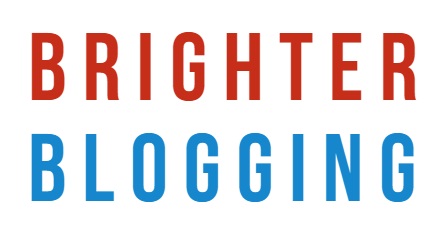Five Things to Call Your Blog Other Than a “Blog” … and Why You Might Want To

Confession time: I have mixed feelings about the word “blog”.
That might sound a bit strange, coming from someone whose website is called BrighterBLOGging, but my reservations are:
- “Blog” can sound a bit technical or geeky to people who aren’t especially tech-savvy.
- A fair number of people still think of a blog as a personal diary – they’re not imagining an authority website that has loads of great content on a particular topic.
- For some businesses, “blog” isn’t the most accurate or helpful description of the type of content they’re providing.
Note: I’m not going to be tackling how to pick a name for your website/blog: if that’s what you’re after, you want Three Different Ways to Name Your Blog or Website [Pros and Cons].
What Even Is a Blog?
Before we go much further, let’s define what a blog actually is.
A blog is a website, or part of a website, that contains separate pieces of dated content.
This content might be published several times a day, a handful of times a year, or anything in between.
It might be short or long. Readers may or may not be able to comment on it. Dates may not be visible on the content itself. It will almost always be published using some sort of blogging platform like WordPress or Blogger.
The good news is – you don’t have to call your blog a blog. You can definitely still think of it as a blog, but you can refer to it as something else in your navigation menu (and in other key places, like your About page and your newsletter emails).
So what else could you call it? How about:
- Articles
- Latest
- News
- Magazine
- Journal
We’re going to run through each of these options, and take a look at an example of each.
#1: Articles
This is a great option if you’re going to be publishing “evergreen”, long-form content – pieces that can be read for years to come. (This sort of content also tends to do well in Google.)
You can use “Articles” in your navigation and in other areas, like your About page, you can use a sentence like “Click here to read our latest articles” or “You can find the full archive of all our articles here.”
Pros:
- Easy all-purpose description that works for many bloggers whose business is focused on content marketing.
- Clearly describes what readers will get when they click on the navigation link.
Cons:
- Can sound a little academic, which may be off-putting to some readers.
- Doesn’t work well if some/most of your pieces are short – “articles” implies something fairly long.
#2: Latest
This is a great option if your blog is focused on providing news about your company primarily. For instance, if you run a children’s soft play centre, “Latest” is a great place to publish posts about special events and special offers.
Pros:
- “Latest” is, in itself, a mini call-to-action – we all like to feel up to date!
- Can easily be used in conjunction with another word, if your blog has a very specific focus – e.g. “Latest Offers”.
Cons:
- Requires you to update your blog reasonably regularly (ideally at least monthly) – “Latest” doesn’t really work if your last post was six months ago.
- Only works well for newsy pieces – doesn’t really work for a blog that focuses on “evergreen” posts.
#3: News
If “latest” doesn’t seem quite right for your site, “news” can be a good alternative. This is particularly popular with fairly corporate websites.
Pros:
- Good catch-all option that can cover anything from special offers to staff profiles to news about your industry.
- The word “news” is short and easy to fit into your navigation.
Cons:
- Could potentially be confusing to readers, who may be thinking “news” as in local/national/international news.
- As with “latest”, it only really works if you update your blog at least monthly.
#4: Magazine
A different angle to take is to call your blog a “magazine”. This can work well for content-based businesses as we all know what magazines are: they have a number of different articles on a particular topic.
Pros:
- Can be a way to position your site a bit differently to others in your niche.
- Lends itself well to having a monthly “theme” for your magazine.
Cons:
- Works best if you have quite a design-heavy blog that looks more like a magazine than a simple list of blog posts.
- May be confusing to readers who don’t realise it’s an online magazine (rather than a physical one, or even a magazine that’s available as a Kindle download or similar).
#5: Journal
Words like “journal” and “diary” have been cropping up in conjunction with blogs since blogging’s earliest days – and “journal” is used by some sites like the blogging platform LiveJournal. If your blog is essentially a personal diary, calling it a “journal” can work well, but “journal” is also an option for more business-focused blogs with a strong personal brand.
Pros:
- Good option for a blog that focuses on a particular phase or adventure in your life (e.g. a travel journal or a diary of a new parent).
- Can make your blog seem more personal and intimate – helpful if you’re trying to build a strong personal brand.
Cons:
- May be off-putting to readers who aren’t particularly engaged with you/your life.
- Probably not a good fit for most businesses, though it could work for a lifestyle business or for affiliate marketing.
Ultimately, it’s up to you what you call your blog. Here on Brighter Blogging, it makes sense for me to use “blog” – because I know I have an audience who are highly familiar with what “blog” means. 😉
Depending on your topic, though, it might make sense to call your blog something else. Articles, Latest, News, Magazine, and Journal (or Diary) are all potentially good options, depending on what you blog about and what you’re aiming to achieve.
What do you describe your blog as in your navigation, or when you’re emailing readers?
Have you come across any simple but creative ways of describing a blog that I haven’t covered here? Pop a comment below to let us know.

Hi Ali,
I think the word Blog is apt and options which you’ve discussed are not attractive enough!
I think “blog” works fine for many sites, but it’s always good to have options… 🙂